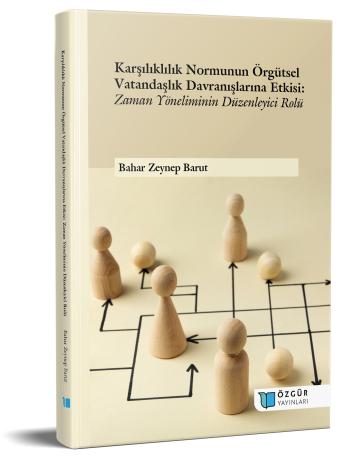
Reciprocity Norm Effect on Organizational Citizenship Behavior: The Moderation Role of Time Orientation
Synopsis
Organizational citizenship behavior (OCB) is defined as employees voluntarily taking initiative, solving problems, and innovating. Understanding the reasons behind such voluntary behaviors is of great importance for the widespread adoption of OCB. The main aim of this current research is to explain the impact of the reciprocity norm on OCB and the moderating role of employees' past, present, and future time orientations on this effect. In line with this objective, a study was conducted on employees working at the Technopark in Ankara. The research data was collected using a survey method. Correlation and regression tests were applied in the analysis of the data, and differences based on demographic characteristics were also examined. The research findings reveal that the reciprocity norm affects OCB and that there is a significant and positive relationship between all time orientations and OCB. In terms of demographic variables, differences in OCB were identified based on age and education level. In conclusion, it is observed that OCB is influenced not only by organizational factors but also by individual factors. In this context, it can be said that employees' expectations of reciprocity and their perception of time and time orientation in the satisfaction of these expectations also have an impact on OCB.

